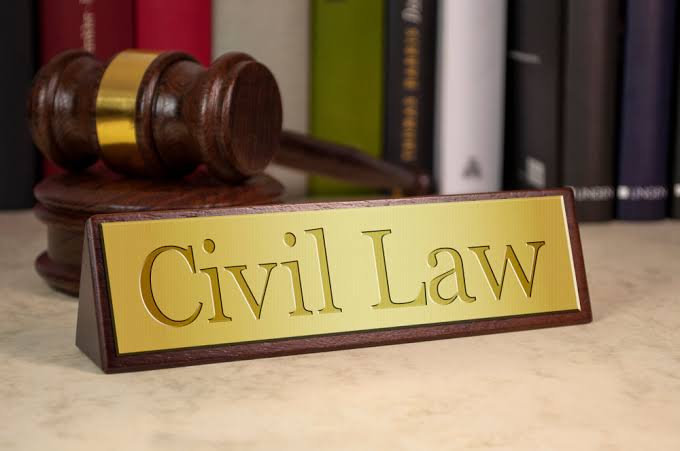Civil law is one of the most essential branches of law, dealing with the rights and responsibilities of individuals and organizations. It governs everything from disputes over contracts, property, and family matters, to the protection of personal rights. Understanding civil law is crucial, not only for legal professionals but also for anyone involved in legal disputes or looking to protect their personal interests. In this article, we will break down civil law, explain its key components, and guide you on how to grasp its basic concepts.
What is Civil Law?
Civil law, also known as private law, is concerned with disputes between individuals or organizations where compensation or remedies, rather than criminal penalties, are sought. Unlike criminal law, which deals with crimes against the state, civil law focuses on disputes such as breach of contract, divorce, personal injury, and property rights.
Civil law varies depending on jurisdiction, but it generally falls into several categories, including contracts, torts (civil wrongs), property law, family law, and inheritance law.
Key Components of Civil Law
To better understand civil law, it’s important to familiarize yourself with its primary areas:
1. Contract Law
Contract law governs agreements made between individuals or businesses. It ensures that promises made in a legal agreement are upheld, and it provides remedies when one party fails to fulfill their obligations. Understanding contract law is essential in business dealings and personal agreements.
2. Tort Law
Tort law deals with civil wrongs that cause harm to another person. These include cases of negligence, defamation, or personal injury. If someone’s actions or inactions cause harm to another individual, tort law determines the compensation that may be owed to the injured party.
3. Property Law
Property law addresses disputes related to ownership and use of land, buildings, or personal possessions. This branch of law is important when buying, selling, or leasing property, as well as in resolving disputes over land ownership or use.
4. Family Law
Family law governs legal issues within the family structure, including divorce, child custody, and inheritance matters. It ensures the legal rights and responsibilities of individuals are upheld in personal relationships, especially when disputes arise.
5. Inheritance Law
Inheritance law deals with the distribution of an individual’s estate after they pass away. Understanding this aspect of civil law is important for estate planning and resolving disputes over wills and inheritances.
How Civil Law Works: The Process
Civil law cases generally involve a plaintiff (the person bringing the case) and a defendant (the person being sued). The process typically follows these steps:
1. Filing a Complaint
The process begins when the plaintiff files a complaint in court, outlining their claim and the remedy they are seeking. The defendant is then served with a copy of the complaint and is required to respond within a certain time frame.
2. Pretrial Proceedings
Both parties may engage in pretrial activities, including discovery (exchange of information and evidence) and negotiations. Many civil cases are settled during this stage to avoid going to trial.
3. Trial
If the parties cannot reach a settlement, the case proceeds to trial. The trial can be heard by a judge (bench trial) or by a jury, depending on the type of case. During the trial, both sides present evidence and arguments, and the judge or jury makes a decision.
4. Judgment
Once the trial concludes, the judge or jury will issue a judgment, determining the outcome of the case. The judgment may include compensation to the plaintiff or orders for the defendant to take specific actions.
5. Appeals
If either party is dissatisfied with the judgment, they may file an appeal to have a higher court review the case. Appeals focus on whether the law was applied correctly, rather than re-examining the facts of the case.
Common Civil Law Terms to Know
Familiarizing yourself with key legal terms will help you better understand civil law:
• Plaintiff: The person who brings a lawsuit.
• Defendant: The person being sued.
• Complaint: A legal document outlining the plaintiff’s claims.
• Damages: Compensation awarded to the plaintiff if they win the case.
• Settlement: An agreement reached by both parties to resolve the case without going to trial.
• Precedent: A legal decision used as an example in future similar cases.
FAQs About Civil Law
1. What is the difference between civil law and criminal law?
Civil law deals with disputes between individuals or organizations, usually involving compensation or other remedies, whereas criminal law involves cases where someone is accused of committing a crime against the state and faces penalties such as imprisonment or fines. Civil cases are resolved by a preponderance of the evidence, while criminal cases require proof beyond a reasonable doubt.
2. How long do civil cases take to resolve?
The time it takes to resolve a civil case can vary significantly depending on the complexity of the case, the jurisdiction, and whether the case is settled before trial. Some civil cases can be resolved within a few months, while others may take several years, especially if they go to trial or involve appeals.
3. Do I need a lawyer for a civil case?
While you can represent yourself in a civil case, it is often advisable to hire a lawyer, especially if the case involves complex legal issues or significant amounts of money. A lawyer can help navigate the legal process, ensure deadlines are met, and provide advice on the best course of action.
Conclusion
Civil law is a broad and complex area of law that governs disputes between individuals and organizations. By understanding the key components of civil law—such as contract law, tort law, and property law—you can better navigate legal matters in your personal and professional life. Whether you are involved in a legal dispute, drafting a contract, or planning your estate, knowing how civil law works will empower you to protect your rights and seek the appropriate remedies.

Leave a Reply